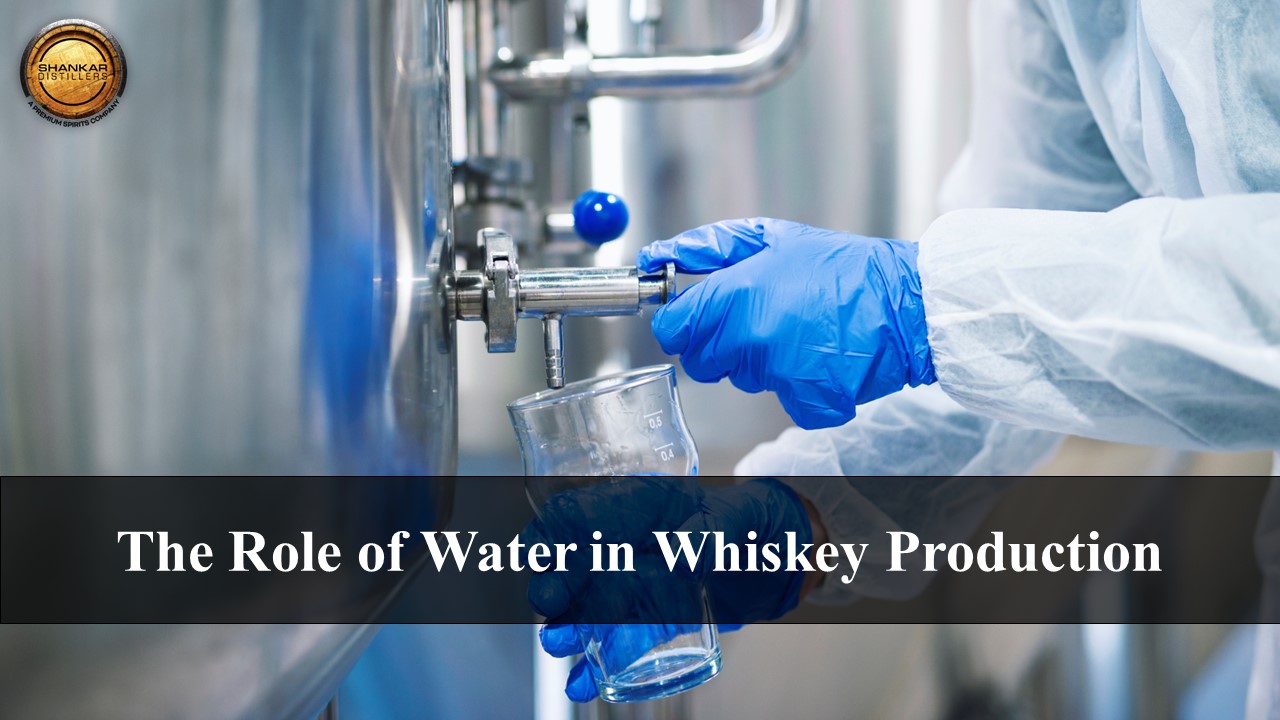Beyond Mash and Still: Water's Influence on Whiskey's Soul - PowerPoint PPT Presentation
Title:
Beyond Mash and Still: Water's Influence on Whiskey's Soul
Description:
Water's influence in whiskey is more profound than you think. Discover its journey from source to dilution and its role in shaping the soul of this beloved spirit. – PowerPoint PPT presentation
Number of Views:0
Title: Beyond Mash and Still: Water's Influence on Whiskey's Soul
1
The Role of Water in Whiskey Production
2
Whiskey, a beloved spirit renowned for its
complex flavors and rich history, is a product of
meticulous craftsmanship. One often overlooked
but crucial ingredient in whiskey production is
water. Whiskey distillers understand the
significance of water at every stage of the
process, from sourcing pristine water to dilution
for bottling. In this blog, we'll explore the
multifaceted role of water in whiskey production,
shedding light on its importance in creating that
perfect dram.
3
- The Source of Water
- The journey of water in whiskey production begins
with its source. Whiskey distillers are
meticulous about selecting the right water source
because it significantly impacts the flavor
profile of the final product. Most distilleries
rely on nearby natural water sources, such as
rivers, springs, or wells. These sources not only
provide the necessary H2O but also contribute
minerals and trace elements that can influence
the whiskey's taste. - Mashing and Fermentation
- Water plays a critical role in the mashing and
fermentation stages of whiskey production. In the
mashing process, grains like barley, corn, rye,
or wheat are mixed with hot water to convert
starches into fermentable sugars. The pH and
mineral content of the water can influence enzyme
activity, affecting the sugar extraction process
and ultimately the flavor of the mash. - During fermentation, water is used to create the
wort, which serves as the medium for yeast to
convert sugars into alcohol. Water quality is
vital here, as any impurities or contaminants
could negatively impact the fermentation process
and lead to off-flavors.
4
- Distillation
- Distillation is the heart of whiskey production,
where alcohol is separated from the fermented
mash. Water is used as a heat transfer medium in
the stills, facilitating the separation of
alcohol from the mash. The choice of water used
for this purpose can impact the efficiency of
distillation and the character of the spirit.
Soft water is often preferred as it helps
maintain the delicate flavors of the whiskey. - Proofing and Dilution
- After distillation, whiskey is often too high in
alcohol content to be bottled directly. This is
where water comes into play again. Distillers
carefully dilute the spirit with water to reach
the desired alcohol by volume (ABV). The choice
of dilution water is crucial, as it can
significantly influence the final product's
flavor, mouthfeel, and aroma. - Many distilleries use their water source for
dilution, ensuring a consistent profile. Some
even have their own wells or springhouses to
provide the purest water possible. The balance
between the alcohol and water content is
carefully calibrated to bring out the whiskey's
best characteristics.
5
- Water and Whiskey Terroir
- Just as wine reflects its terroir (the
environmental factors that influence grape
growth), whiskey can also showcase the terroir of
its water source. The minerals, pH, and other
chemical characteristics of the water contribute
to the unique flavor profile of a whiskey,
creating a sense of place that is cherished by
enthusiasts. - Conclusion
- Water is an unsung hero in whiskey production,
with its importance spanning from the initial
mashing of grains to the final dilution of the
spirit. Whiskey distillers pay meticulous
attention to water quality and source selection
to craft exceptional spirits that capture the
essence of their region. Next time you savor a
glass of whiskey, take a moment to appreciate the
role that water plays in creating the complex and
delightful flavors in your dram. It's a testament
to the craftsmanship and dedication of whiskey
distillers in their pursuit of perfection.
6
- To delve deeper into the world of whiskey
production and witness the artistry behind
crafting exceptional Indian whiskey, consider
visiting Shankar Distillers, renowned as one of
the best whiskey distillers in India. Nestled
amidst the picturesque landscapes of India,
Shankar Distillers boasts a rich heritage of
producing top-notch spirits. Here, you can
explore the intricacies of their distillation
process, witness the careful selection of local
water sources, and gain insights into the secrets
of aging and blending that contribute to their
distinct whiskey flavors. - Useful Links
- Straight bourbon whiskey recipes
- Rye whiskey recipes
7
Thank You
Follow us on































